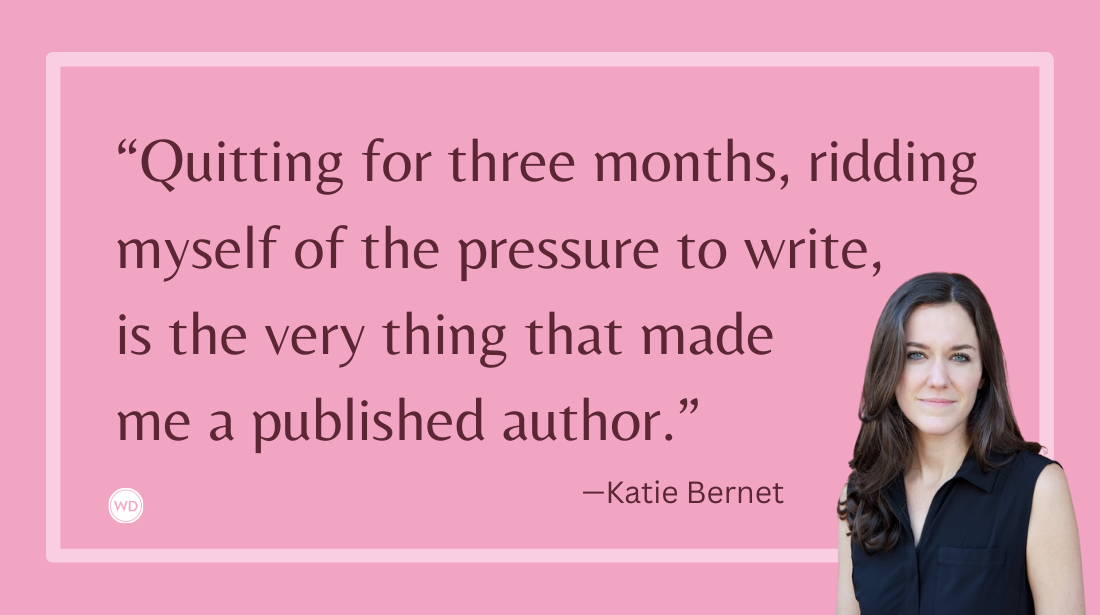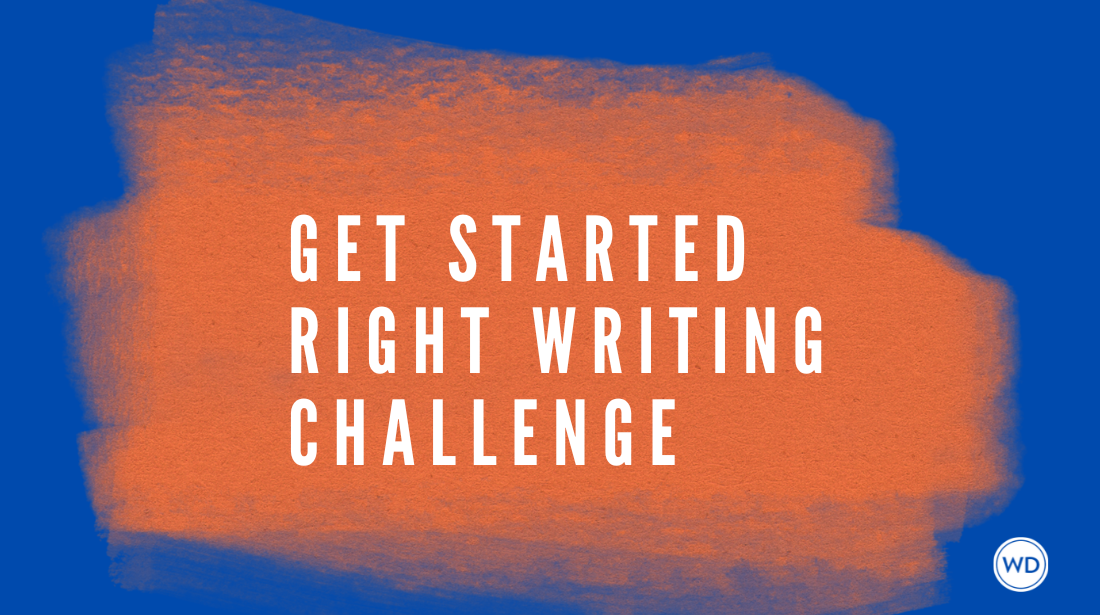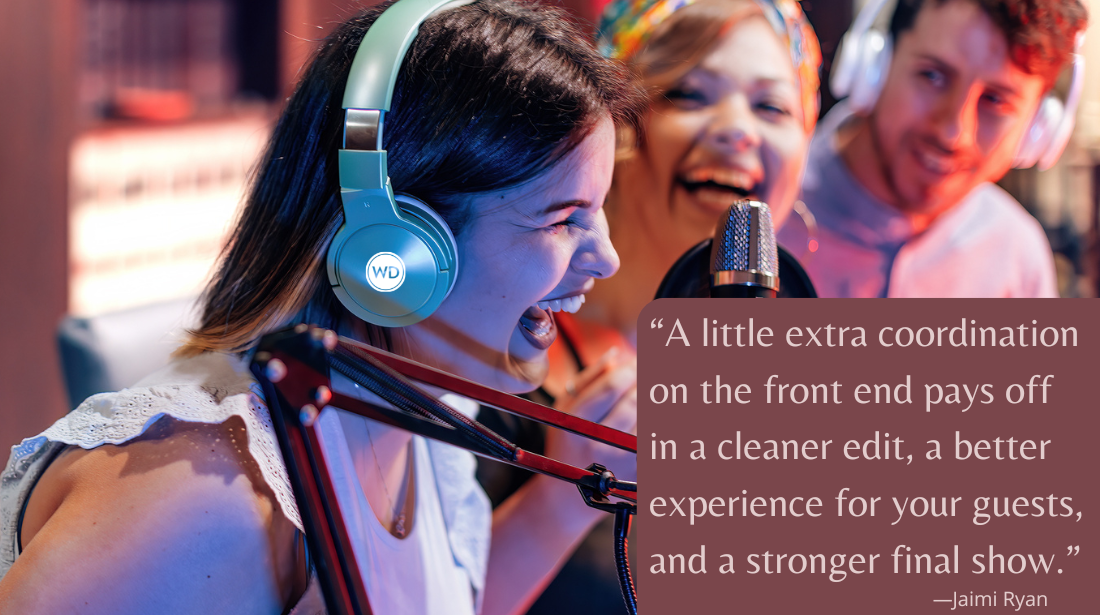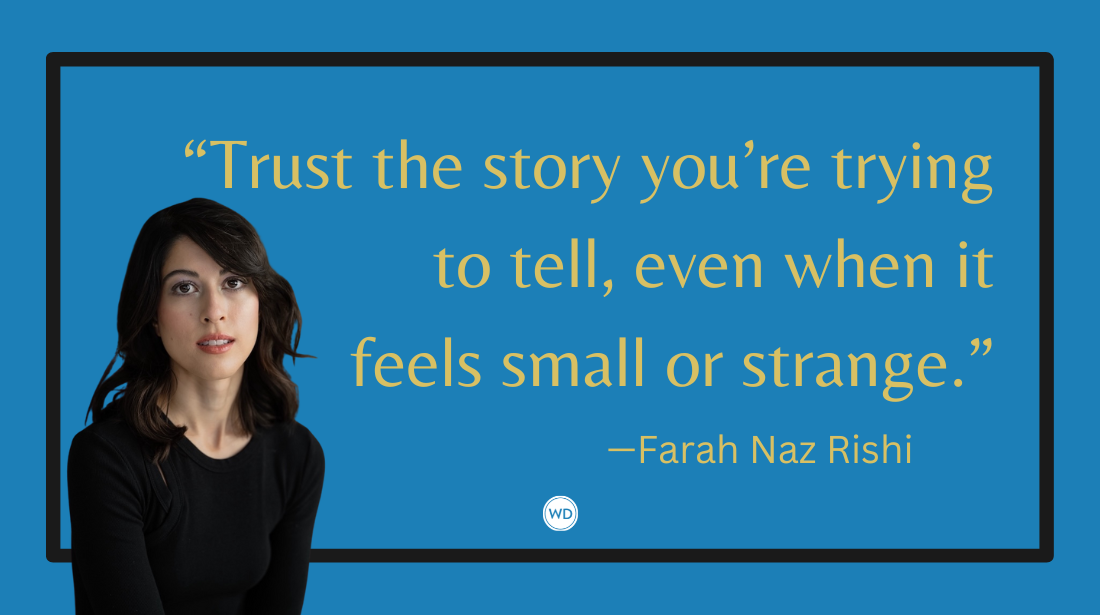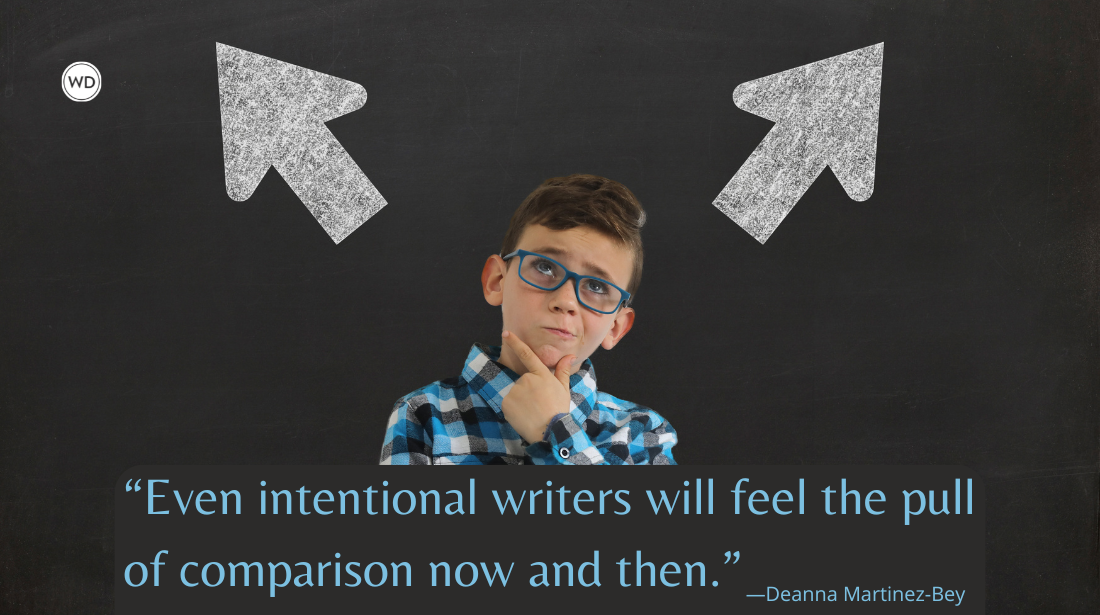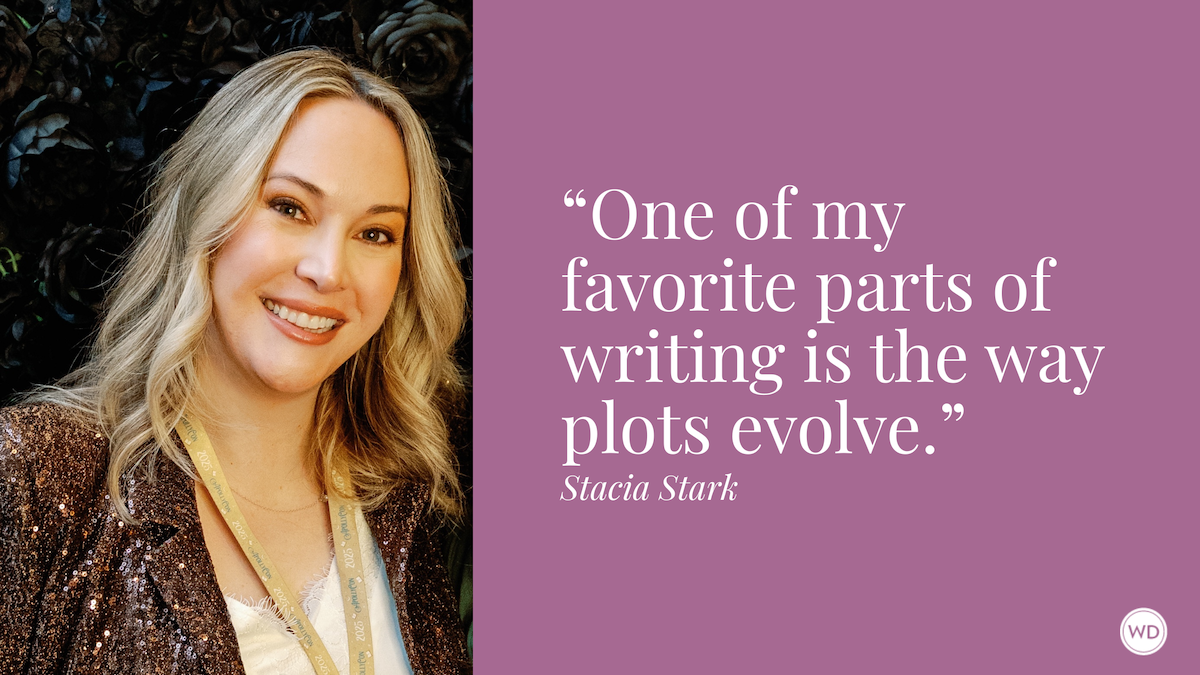Building an Enthusiastic Fan Base as a Self-Published Author
Today’s Q&A is with novelist and 20-year Silicon Valley wage slave John Sundman. I first met John when his novel, Acts of the Apostles, won 1st place in the genre…
Today's Q&A is with novelist and 20-year Silicon Valley wage slave John Sundman. I first met John when his novel, Acts of the Apostles, won 1st place in the genre fiction category of the Writer's Digest Self-Published Book Awards. We've stayed in touch ever since, and he recently interviewed me over at WetMachine. Below we discuss the arc of his career as a novelist, which started in 1999.
Give us a few interesting bits to start off with, John. You're a pretty eclectic guy.
It does seem to me that I've had a wider range of experience than many suburban baby boomers—growing up on a farm in New Jersey (milking cows, tending sheep & chickens, etc) and going to high school in Manhattan; several years in African agriculture; bi-coastal manager of software developers for big computer company & later a graveyard-shift pallet-jockey at a food warehouse; blah blah blah. I am a firefighter. On the other hand, it's not like I'm Squanto or something, or Lazarus back from the dead, AND I WILL TELL YOU ALL, etc.
Your work, as the "Grumpy Old Bookman" said, is for only "seriously eccentric" people. I assume you received strings of rejections from publishers—or your agent did—before you went the DIY route?
The Grumpy Old Bookman also said, "All three of Sundman’s books are somewhere between excellent and brilliant" and "It’s only when you read a book like [Acts of the Apostles] that you realise what a feeble, runty thing the average thriller is. [Acts] is a rare fusion of science and, in the broadest
sense, literature."
But set that aside for a minute. The short answer is yes, I did receive scores of rejections for my first novel Acts of the Apostles, including dozens of tantalizing "almosts." I had an agent who worked with me for four years (1995-1999), through dozens of rewrites of that book. All told, in its various incarnations it was rejected at least fifty times—and that's just the book rights. The movie rights were rejected 26 times.
One weekend, long ago, every major Hollywood producer read the manuscript for Acts—they all declined to make an offer, sigh, but until the harsh day dawned on Monday that was some weekend, knowing that Spielburg, Cameron, Lucas, etc, all had their copies of my book, had actually requested copies—my daydreams that weekend were absurd. (I wrote more about this in in my "Adventures in Self-Publishing.")
But getting back to the "seriously eccentric" line—while Cheap Complex Devices may be a bit challenging (one Amazon reviewer called it "Goedel, Escher Bach as told by Hunter S. Thompson on acid"—I'll say more below), Acts of the Apostles is just a thriller— but one that is, according to Hemos, on the website Slashdot, "What Tom Clancy would write if he were smart."
Acts is a part in a larger, metafictiony whole (called Mind over Matter), so it's eccentric in that sense. But first and foremost it's a thriller, a proverbial page-turner in the "Bourne Identity" mold. Now, the reader who knows about Unix internals, VLSI design, techniques for manipulating DNA, the cultural history of Silicon Valley and the music of Frank Zappa is probably going to enjoy the book a bit more than people without that background. But the generic intelligent reader should do fine with it, as I think is borne out by the 68 reviews on Amazon.
I've never submitted the two novellas that I wrote after Acts of the Apostles (Cheap Complex Devices and The Pains) to publishers, with or without an agent. I figured that if I couldn't sell a straightforward, well-written thriller, there was no way I would be able to sell my more wacky shit, er, I mean "eccentric" books. So I just said "fuggit" and published them myself.
You e-published Acts of the Apostles in 1999, long before it was fashionable to do so. In broad strokes, tell us about the success you had doing that, and what value from that has carried over for you today.
I put the first 13 chapters of Acts, in HTML format, for free download from my brand-new website Wetmachine.com in late summer 1999. When the actual book came back from the printer in mid-autumn of that year, I put it up for sale on my website and through Amazon. This was before PayPal was widely known, and I didn't want to go through the hassle of setting up a merchant account to process credit cards. So I said, "Buy the book from Amazon, or fill out this form and send me a check in the mail and I'll send you a book. Which I'll be happy to sign for you any way you like."
I didn't have much of a marketing plan other than e-mailing my friends and writing to people who had book-review sites and asking them if they would like a free copy. But the word got around. Soon I was deluged with e-mail, and within days I started getting checks in the mail. Many dozens of 'em. Mostly from the United States, but also from Sweden, Australia, Singapore …
(I also went off on a national tour and spent a lot of time trying to get the book into bookstores, with mixed success, but that's too long a story for here; see Adventures in Self Publishing.)
A few years later my second book, Cheap Complex Devices, came out. Again, I put the first third of the book on my site for free download. But this time I tried something new: I started selling PDFs of the books (without copy protection) for $5 each. It worked this way: You PayPal me $5, and I e-mail you a password that allows you to download the PDF. I sold perhaps a couple of hundred copies this way.
In late spring 2003, I was at the O'Reilly "Emerging Technology" conference where Creative Commons was announced.
There I was persuaded by Cory Doctorow and a few of my geekoid friends to release the full contents of both of my books, in their entirety, under the Creative Commons license—that is, to give away for free something that up until then I had been selling for five bucks.
The rationale at the time was that obscurity was any new writer's biggest problem, and making my books availab
le for free would be the easiest way to make my work more widely known.
Swept up in the great euphoria, I said, "Sure, why not? Let's see what happens." So whoosh, like that, both my books (in PDF format) became instantly free. Since then they've been downloaded more than 20,000 times from my own site, and they're on dozens of torrent sites and free e-book sites, so who knows how many times they've been downloaded. 30K? 40K? Who knows.
Recently I've made my books available for sale in e-book formats (different formats and channels for each book—long story) and stopped giving them away for free from Wetmachine.
So now I'm making money selling the books that are freely available elsewhere on the net.
Tonight, for example, as I write this note, in Amazon's Kindle store, Acts of the Apostles is ranked #18 in the "technothriller" category. Not bad for a book that's 11 years old and available for free all over the net, and which has only been available for sale on Kindle since May of this year.
What happened after you won the Writer's Digest Self-Published Book Award for your novel in 2001? Was that any help at all?
Frankly, not much. I liked the validation of winning a competition with 323 other entrants, and I liked the $500 prize money. I liked being invited to write an article or two for Writer's Digest magazine. I liked doing book swaps with other entrants in the contest.
The stigma attached to self-published books was much stronger a decade ago than it is now. There was very little talk of "indie cred" then; "self-published" was widely assumed to mean "shit."
Writer's Digest sent me a roll of 500 very nice stickers to put on my books: "Winner: Writer's Digest National Self-Published Book Award." I put the stickers on a few hundred books that I sold at book fairs and the like. Some people said, "You won a Writer's Digest contest? Cool!" But others said "Self-published? Not interested." I threw the rest of the roll in the garbage.
Don't let this go to your head, Jane, but the best thing to come out of my winning that award was that I met you and we became friends.
Would you share how many total copies you've sold of Acts of the Apostles? Cheap Complex Devices? (Did Acts enjoy a sales bump when your second book released?) And what formats are the most popular, given that you have a tech audience?
Of print copies, I've sold about 4,700 copies of Acts, about 1,700 of Cheap Complex Devices, and about 400 of Pains. There was a small bump in Acts sales when Cheap Complex Devices came out.
Of e-books, a few hundred of each.
As to most popular formats, for Acts and Cheap Complex Devices, the free PDFs under Creative Commons license are the most popular, by far. (After all, they're free.) For The Pains I wised up; I don't give away the PDF for that book—I sell it on my website for $3.
Note about e-books & design: I sell many more copies of the Kindle version of The Pains than I sell either paper or PDF. This is kind of sad, since The Pains is an art book with fancy typography and glorious color illustrations. The paper version is on glossy, thick stock, and I think it's beautiful. The Kindle version, on the other hand, has boring typography (it doesn't support the typeface I used in the original) and monochrome illustrations that really don't do justice at all to the originals. But people seem happy with it and I'm happy to get the dough. I just wish more people would buy the PDF version. But, alas, for now, that version is only available on my website, so only the really intrepid explorer is likely to come upon it.
Similarly, Cheap Complex Devices relies a lot on design and illustrations, and it will take some amount of work to make non-PDF versions that I'll be happy with. So for now, it's only available in paper, and in PDF from my website.
One thing worth pointing out is that lately, for all my books, electronic formats are outselling paper versions by a factor of twenty or thirty. E-books are taking off WAY beyond my expectations. I try not to think about all those tens of thousands of books I have given away for free! I could have been selling them! Oy!
You're a software guy, which informs your fiction, and you also know heavy hitters in the tech industry. Can't we get those people to pull some strings for you? (I'm kidding, sort of.) Tell us how the tech background has played a role (or not) in your publishing success.
I would certainly love to receive more love from hitters of every weight in any tech sphere (digital, biological, nanotech, etc). But let me take a second to thank those who have put in a good word for me.
The number one propellant of my sales, ever, is this review of Acts of the Apostles by Hemos on the website Slashdot.
To give you an idea of the impact of this review (which is actually kind of a lukewarm review, compared to others I've read): when I went to bed on the night this review came out, my Amazon ranking was about 1,000,000. When I woke up the next morning, it was #63. For a weekend, on Amazon, anyway, I outsold Tom Clancy, Michael Crichton, and Stephen King. All on the basis of that one positive, but not ecstatic, review. (That ranking resulted from selling 350 books over a few hours, by the way.)
The subsequent Hemos review of Cheap Complex Devices was another great shot in the arm, but not nearly of the magnitude of the Acts review.
Not only that, but the Slashdot editors decided to run a free ad for Acts on their home page for about four months: "For some really good fiction, check out Sundman's book …"
The Slashdot review of Acts provided an entree to Salon.com, a less geeky site favored by NPR-listening young techno-hipsters. (Because my book was making a splash with the Slashdot set, Salon decided to write about it). And this glowing review on Salon not only got me a nice pile of sales, but also led to me getting contracts to write essays for Salon—of which I wrote three (two of which were two-parters). My Salon essays were among the most popular ever for that site up to that point in time. For example, 70,000 people downloaded my essay on the Loebner Prize on the first day it was up, and my essay on the Human Genome Project got all kinds of attention. My essays were selected "Best of Salon", and Salon made me a "featured author" , basically running a free ad for me with links to my home
page for a few months—and that of course led to some book sales. None of that would have happened without that original Slashdot review.
Ten years later, that Slashdot review still has force. When I got to pimp my books at geek conclaves like DEFCON I put out printed copies of dozens of reviews. But I've learned to bring more copies of the Slashdot review than any other. "Hemos loved it? How much? Ten bucks? I'm in."
Cory Doctorow has been very generous in giving attention to my books on his site boing boing. (He ran two nice bits about The Pains, here and here.)
Tim O'Reilly, with whom in a prior life I worked very closely from about 1984 to 1989 or so, before he was a legend, has been very kind; for example (shhhh! this is a secret!) because we're old friends, Tim has allowed me to get, at zero cost, tables from which to pitch my books at four or five of his conferences (tables rented to everybody else for a few thousand dollars); moreover a few editors at O'Reilly have been among my biggest fans and promoters. Tim also put out a nice Tweet to his more than one million followers endorsing my Kickstarter project. (If only I could convice Tim to publish fiction!)
And web guru Jeffrey Zeldman has been a very enthusiastic supporter, having written several blogposts about my books and an ethusiastic review on Goodreads. He even took me to dinner!
I've also had some nice notice from fans from the bio-geek community. Recently George Church (head of the MIT/Harvard computational biology lab) put up this very nice notice about The Pains on Amazon; he even created a Twitter account expressly to tweet about my books. (That got me some cred in the molecular biology world, let me tell you.)
I'm also friends with some other "heavy hitters" (DOUGLAS HOFSTADTER, I'm looking at YOU!), who have communicated private appreciation for my writing but not yet been inclined to say much publicly. Oh well.
(Hemos, meanwhile, has gotten out of the "content" business altogether, which is why he declined to review The Pains, after having given very positive reviews to my two earlier books.)
But I think it's important to point out that Hemos and Doctorow and Zeldman and O'Reilly notwithstanding, it's been the word-of-mouth among every day, average readers who've spread the word that has really sustained my novelistic career, such as it is. I welcome help from all my readers, be they famous or no.
(But just for fun, check out these two celebrityendorsement videos.)
Given how the industry has changed, what new opportunities do you envision for your work and career as an author?
Last fall I used Kickstarter to raise about $7,000 to help sustain me as I work on my newest novel, Creation Science. (It says I raised $8K, but not all pledges cleared.)
For lucky people like me who have an enthusiastic fan base, however small, the Internet now offers all kinds of possibilities for fundraising, marketing and the like. I was able to raise that much money from 120 people because they all really wanted me to keep doing what I'm doing.
Outside of Kickstarter, I have to admit, I haven't been very good at using new social media. I've had a blog for nearly ten years, but it's never really developed a community—perhaps because it has about 15 themes. There's not much focus to it; I write about whatever comes into my head.
I used to be an innovator, now I'm a laggard. So sorry, not much to offer here, for I've been slow to adapt to changing realities (I really underutilize Facebook and Twitter, for starters), and I'm really trying to figure out how to make the most of new opportunities. Today Neal Stephenson & Greg Bear & company introduced their "Mongoliad."
I think it's great, but it scares me. How the hell am I going to compete with that? To quote my mentor and role model Garth Algar, "We fear change."
How do readers usually find you? Or how do you find readers?
New technology aside, here's some observations an old-technology that I've used a lot—the in-person pitch.
I write and publish fiction whose primary audience is—so far—hackers and geeks. Sometimes I go to places where hackers and geeks and related species congregate & there set up a table put out copies of my books and glowing reviews from geekoid sites and start carnival barking like Billy Mays, selling my books for cash. I've done this for ten years. I've sold books at software and bioinformatics trade shows, at O'Reilly technology conferences, at Bar Camps and Geek Faires in San Francisco, New York, Santa Clara, Boston, San Jose, Cambridge, Las Vegas, San Diego, Tucson and points in between. It's kind of like being a has-been rock star on the dive-bar circuit, only without out the sex, drugs and rock and roll, with fewer babes & more smart and unathletic people for company.
So about a month ago I was in Las Vegas for Defcon, an annual tribal convocation of hackers, ten thousand strong. The Argentinian novelist Pola Oloixarac snapped a few pictures of me for her nifty photoblog (scroll down). It's in Spanish, but you can get the gist from looking at the pictures.
Here's the banner I had made up for Defcon this year. It's 8 feet long. (Note how the Slashdot/Hemos quote, "What Tom Clancy would write if he were smart" figures prominently. It helped move a bunch of books.)
I sold about 350 books in three days at Defcon, so I more than covered my expenses (staying at the Sahara Hotel, $149 for three nights), but I always attend such shows not merely to sell books, but also in the hope that I'll meet helpful people and generate buzz that lasts after the show. It's nice to sell books in person, but it's not exactly a strategy that "scales," as we nerds say.
For example, at the Geek Pride Festival in Boston (2000), I met Hemos & CmdrTaco of Slashdot, Jeffrey Zeldman, and Jack Burlingame, publisher of now-defunct Boston Software News (Jack not only threw some freelance work my way, he also serialized Acts in his newspaper, Charles Dickens style).
I met a producer for a talk radio station in Boston, which led to my being a guest
on a pretty popular show the following week. I met Cory Doctorow at the O'Reilly Emerging Technology conference in 2003.
All these chance connections had beneficial after effects. So even if I barely sold enough books to cover my expenses—and I usually sold more than that—I calculated the benefit of any show in terms of connections made and long-term buzz.
And of course, it's fun to talk with fans; I run into a few of those from time to time. It's also good for my mental health to get out of the house.
But for whatever reason, I don't seem to be hitting many serendipitous goldmines lately. There were 10,000 people at Defcon, but as far as I can tell, Pola is the only person who's mentioned me, and not a single person who bought a book from me has sent a follow-up e-mail or written a review on Amazon. I can't figure it out. I've been putting a lot of thought into whether such road tours make sense anymore.
Your novel Acts of the Apostles is, as you say, pretty much a straightforward thriller. You followed that up with a metafictiony novella and than an illustrated creepy Orwellian horror story. Do you think it would have made more sense to establish yourself as a thriller writer before branching out into such disparate genres? Or to be blunt, what do you write, and why? What are you trying to accomplish?
In my thriller Acts of the Apostles, there's a very shrewd, hard-ass detective with a "clipped Hungarian accent"; his name is Ivan Marki. He's named after Ivan Marki, Professor of English and American Literature at my Alma Mater, Hamilton College. Professor Marki made his escape from Budapest (during the Hungarian Uprising of 1956 when the Russian tanks were in the streets), and fled to America, home of his favorite poet, Walt Whitman.
I took every course he taught. And he, more than anybody, instilled in me the understanding that literature, done right, is not merely entertainment; it is morally important, serious stuff: you can't have civilization without it. Literature is a tool for helping us understand how the world works and how we might find our way in it. It helps us discover what it means to be human suggests how we can get along with each other, how we can address the bewildering challenges that face us individually and collectively. In Marki's classes I always felt the urgency of tanks in the streets: chaos, war and mayhem waiting for the slightest excuse to erupt. Literature is a prophylactic against stupidity and savegery. At least, that's my hope. As a firefighter, I'm a big fan of smoke detectors and sprinklers; I was a Peace Corps Volunteer. I'm all about preserving the peace, I guess.
So, I'm trying to create not just books that will sell and make me some money (please! please make me some money!), but I'm also trying to create literature, and I think to do that you have to be willing to take some risks, to challenge yourself and to challenge your readers. Acts of the Apostles, Cheap Complex Devices and The Pains are different from each other in tone, style and technique because they are each commentaries on the others, and are each making different points about reality and how we come to understand it through words and stories. So no, I couldn't have written another thriller after Acts. I had to finish writing "Mind over Matter," of which Acts is only the first part.
So my books—especially at the "meta" level, considered as a set—are challenging, but no more so than Nabokov's or Sterne's work. I just don't think my books have really found their audience yet (they've found one toe of it, at least). I do wonder if they ever will find the whole beast. I hope they do, because I need the dough.
My thanks to John for sharing so much of his insightful story. Go follow John on Twitter, or on Facebook.
Jane Friedman is a full-time entrepreneur (since 2014) and has 20 years of experience in the publishing industry. She is the co-founder of The Hot Sheet, the essential publishing industry newsletter for authors, and is the former publisher of Writer’s Digest. In addition to being a columnist with Publishers Weekly and a professor with The Great Courses, Jane maintains an award-winning blog for writers at JaneFriedman.com. Jane’s newest book is The Business of Being a Writer (University of Chicago Press, 2018).




